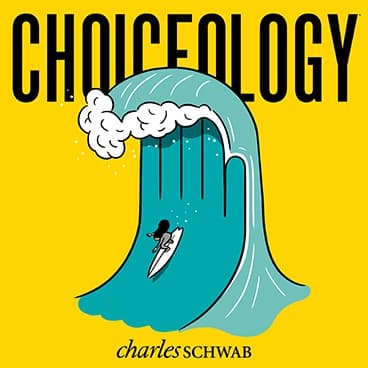Brave on the Waves: With Guests Bianca Valenti & Katherine Coffman
We all make decisions involving risk. Decisions like trying out for your school's chess team, speaking up when you don’t agree with your boss, or going down a double-black-diamond run at the end of a long day of skiing. So how do we determine which risks are worth taking and which ones are too … risky?
In this episode of Choiceology with Katy Milkman, we look at gender differences around confidence and uncertainty, and how we can all better calibrate our bravado.
Surfing waves as tall as apartment buildings takes a lot of strength and skill and preparation. It also involves risk—mistakes can lead to broken bones, concussions, or worse. But as Bianca Valenti explains, those risks can be managed, and there are big rewards in those big waves.
Bianca Valenti is a world-champion surfer, speaker, activist, and entrepreneur. Watch her award-winning ride for the Mavericks Awards.
Next, Katy speaks with Katherine Coffman about research that explores how gender stereotypes shape beliefs about taking risks.
You can read more in the working paper she co-authored called "A (Dynamic) Investigation of Stereotypes, Belief-Updating, and Behavior."
Katherine Coffman is the Piramal Associate Professor of Business Administration in the Negotiations, Organizations & Markets unit at the Harvard Business School.
If you enjoy the show, please leave a rating or review on Apple Podcasts.
Learn more about behavioral finance.
Explore more topics
All expressions of opinion are subject to change without notice in reaction to shifting market conditions.
The comments, views, and opinions expressed in the presentation are those of the speakers and do not necessarily represent the views of Charles Schwab.
Data contained herein from third-party providers is obtained from what are considered reliable sources. However, its accuracy, completeness or reliability cannot be guaranteed.
The policy analysis provided by the Charles Schwab & Co., Inc., does not constitute and should not be interpreted as an endorsement of any political party.
Investing involves risk, including loss of principal.
The book How to Change: The Science of Getting from Where You Are to Where You Want to Be is not affiliated with, sponsored by, or endorsed by Charles Schwab & Co., Inc. (CS&Co.). Charles Schwab & Co., Inc. (CS&Co.) has not reviewed the book and makes no representations about its content.
Apple Podcasts and the Apple logo are trademarks of Apple Inc., registered in the U.S. and other countries.
Google Podcasts and the Google Podcasts logo are trademarks of Google LLC.
Spotify and the Spotify logo are registered trademarks of Spotify AB.



